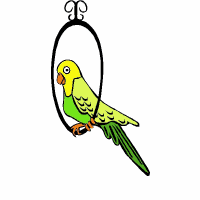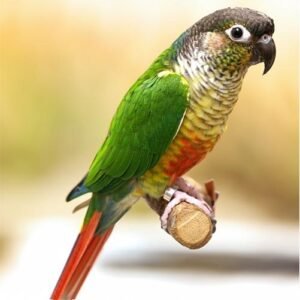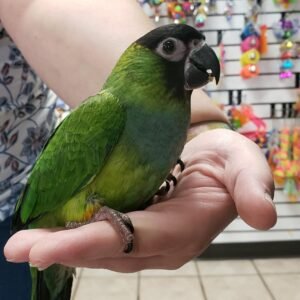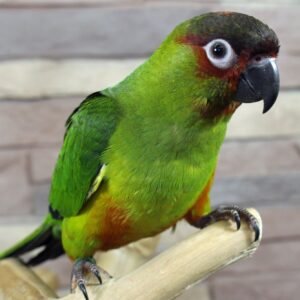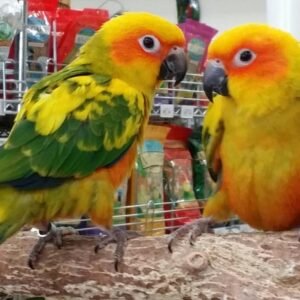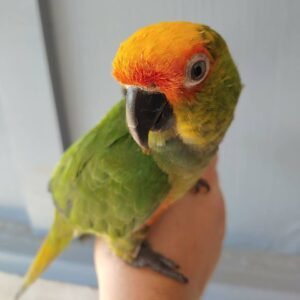No products in the cart.
Black Cap Conures for Sale
$400.00
Black-capped conures make beautiful, fun-loving pets. While they require a great deal of attention from their owners, they always seem to reward human efforts with their hilarious antics. They enjoy interacting with their owners and crave daily playtime and attention.
These conures are a perfect playful pal and are full of positive energy. They are noted to bond with their family and show a timid and docile side when guests are in the house. One of the reasons behind their popularity is their clownish personality – they love to play, invent new tricks and hop around the house in a truly silly fashion. This friendly and truly great personality makes so many families fall in love with the Black-Capped Conure. And who knows, you might be the next in line!
AGE: 4 – 5 months Old
SEX: Male | ♀ Female
SKU: 33437108811701171 Category: Conure Parrots
Black Cap Conures for Sale
The Black-Capped Conure has found its way into the hearts of many owners. With a friendly, docile, and often goofy temperament, these little birds boast a lot of traits that make them perfect pet parrots. They are easy to care for and can be a perfect choice for beginner owners. Additionally, these little parrots are considered one of the quieter conure breeds. Owners who live in apartments can rest easy – the Black-Capped Conure is a quieter bird with well-rounded traits.
Black-Capped Conures is one of the most unique-looking breeds of this family. As a bonus, they are very friendly and entertaining.
Origin of the Black-Capped Conures
Black-capped conures, also known as the black-capped parakeet or rock conure, are another member of the conure parrot species. They originate from the southwestern Amazon basin, Bolivia, Brazil, and adjacent east Andean sloped in Peru.
Description
Even though they are largely similar to other closely related conures in physical appearance, the rock conures, as they’re also known, are one of the smallest in the species. Black-Capped Conure flaunts a host of unique and distinguishing features, making them easy to recognize. The adults reach an average length of 10 inches (25 centimeters) and weigh around 2.5 ounces (70 grams). They have moderately sized tail feathers and are generally considered medium-sized parrots. Conures are very energetic and will require plenty of space. They like hopping about and ” transforming” household items into new toys. To prevent boredom and depression, you need to ensure a spacious cage and a lot of time out of it.
Temperament
The black-capped conure is a playful and social animal that makes for a great pet. If you decide to purchase one of these birds, remember that they require a lot more attention than you might expect. Once they become comfortable with you, they will want to interact and play with you daily. Over time, you will likely notice that your black-capped conure is very comfortable around you and other family members. However, it might take him some time to warm up to new people, such as house guests.
In addition to social interaction, your conure needs mental stimulation. The black-capped conure is a very intelligent animal that can easily become bored. One way to make sure your black-capped conure gets the stimulation he needs is by providing him with plenty of toys. For example, providing your black-capped conure with a wooden toy made for birds will prevent him from chewing on other things and keep him busy. You should also consider placing your bird’s cage in an active area of the house. That way, your bird will be stimulated in addition to being less likely to feel lonely.
Caring for the Black-Capped Conure
Black-capped conures require much attention from their owners. They enjoy interacting with their owners and long for daily playtime. They make beautiful and excellent, fun-loving pets. Though they can be fun and playful with their owners, they can be a tiny little bit shy around strangers. These intelligent creatures have the tendency to be cold and bored if ignored. It could become mentally depressed and develop medical and behavioral problems.
Conures should be fed a proper diet to keep them happy and jovial. A regular diet should include nuts, veggies, small-sized pasta, fruits, cooked chicken or turkey, pellets, and other bits and pieces of food. Many would prefer boiled vegetables to fresh ones.
Their cages are A worth-noting item on the list. A spacious square or rectangular cage appropriate is most preferable. Advisably, do a thorough checking of the security mechanism of the cage before purchase. Their Cage size should be approximately; 24″ W x 24″ H x 24″ D and Bar spacing of 5/8″ to 3/4″. The cage should be strong (wrought iron, stainless steel) to withstand the conure’s tough beak. Horizontal bar wires will allow the conure to exercise by climbing on the sides of the cage.
Cage
Their cages are A worth noting item on the list. A spacious square or rectangular cage appropriate is most preferable. Advisably, do a thorough checking of the security mechanism of the cage before purchase. Their Cage size should be approximate; 24″ W x 24″ H x 24″ D and Bar spacing of 5/8″ to 3/4″. The cage should be a strong one (wrought iron, stainless steel) so it can withstand the conure’s tough beak. Horizontal bar wires will allow the conure to exercise by climbing on the sides of the cage.
Health / Condition
Conures are susceptible to Psittacine beak feather disease, Psittacosis, beak malocclusion, and Aspergillosis. Hence a regular checkup is necessary for your Conures, as it may help diagnose and treat many health conditions. Accompanied by plenty of freshwaters.
Related products
Conure Parrots
Rated 4.92 out of 5
$265.00Conure Parrots
Rated 4.97 out of 5
$800.00Conure Parrots
Rated 4.92 out of 5
$500.00Conure Parrots
Rated 4.90 out of 5
$500.00
